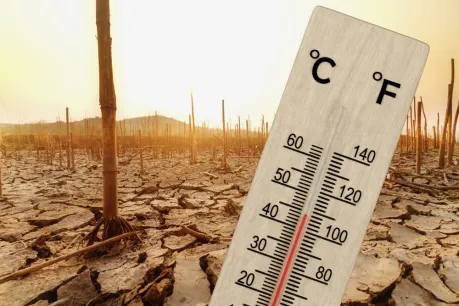Heatstroke on the Job: Employer Responsibilities During Extreme Temperatures

Injured?
When the temperature rises, so do the risks, especially for people working outdoors or in high-heat environments. Construction crews, warehouse workers, landscapers, delivery drivers, and even kitchen staff face increased danger during a heatwave. And while heatstroke is often dismissed as a summertime nuisance, it’s actually a serious and potentially fatal medical emergency.
You may wonder what happens if you suffer heatstroke while on the job, and who can be held responsible. Let’s break down what your rights look like when the heat becomes hazardous, and what legal options you may have if those rights are ignored.
What Is Heatstroke?
Heatstroke is the most severe form of heat illness. It occurs when the body overheats and is unable to regulate its internal temperature. Without immediate treatment, it can cause permanent organ damage, disability, or death.
Common symptoms include:
- Body temperature above 104°F
- Confusion or altered mental state
- Nausea or vomiting
- Rapid heartbeat
- Headache
- Fainting or loss of consciousness
Heatstroke isn’t just uncomfortable; it’s life-threatening. And in many job settings, it’s preventable.
Which Workers Are Most at Risk?
While anyone can suffer from heatstroke, some workers are at higher risk, including:
- Construction and road workers
- Warehouse and factory employees
- Agricultural and farm laborers
- Delivery drivers and movers
- Cooks and kitchen staff in poorly ventilated spaces
- Roofers, landscapers, and other outdoor workers
These roles often involve working long hours in direct sunlight or heat-intensive environments, with limited breaks and heavy physical labor, making them especially vulnerable.
Employer Responsibilities During Extreme Heat
Under Occupational Safety and Health Administration (OSHA) regulations, employers are legally required to provide a safe working environment. That includes protecting workers from known hazards, like extreme heat.
Employer responsibilities include:
- Providing access to water, shade, and rest breaks
- Monitoring workers for signs of heat illness
- Training employees on how to recognize and prevent heatstroke
- Modifying work schedules or limiting physical exertion during heat advisories
- Offering cooling stations or air-conditioned recovery areas when possible
Failing to implement these basic protections can lead to injuries and legal liability.
What Happens If Your Employer Fails to Protect You?
If you suffer heatstroke or another heat-related illness because your employer failed to take reasonable precautions, you may be eligible for:
- Workers’ compensation benefits include coverage for medical expenses, lost wages, and ongoing care or rehabilitation.
- Personal injury claims. In certain cases, especially when gross negligence is involved, you may also have grounds for a personal injury lawsuit, particularly if a third party (like a subcontractor or staffing agency) played a role.
- OSHA complaints and investigations. If your employer violated safety standards, you can file a formal complaint, which may result in penalties or required corrective actions.
The key is documentation, medical records, witness accounts, work logs, and communications that show your employer ignored safety protocols.
What If You're Pressured to Work Through It?
Some workers are afraid to speak up about heat risks, but no one should have to choose between their health and their paycheck.
It’s illegal for employers to retaliate against workers who report unsafe conditions or seek medical attention for heat-related symptoms. If your employer threatened, harassed, or fired you for refusing hazardous work or reporting symptoms, you may have an additional retaliation or wrongful termination claim.
Your Health Comes First
Heatstroke can happen fast. If you start to feel dizzy, confused, or overheated on the job, don’t “tough it out.” Stop working, notify your supervisor, and seek medical help immediately. Once you’re safe, make sure the incident is properly documented.
You deserve to work in a safe environment, regardless of the weather. And when your employer fails to protect you, you have the right to hold them accountable.
Morgan & Morgan has helped thousands of workers stand up to unsafe employers, and we’re ready to do the same for you. If you or a loved one suffered heatstroke or another serious illness while working in extreme temperatures, contact us today for a free, no-obligation case evaluation. Protecting workers is our job, no matter how hot it gets.

We've got your back
Injured?
Not sure what to do next?
We'll guide you through everything you need to know.
